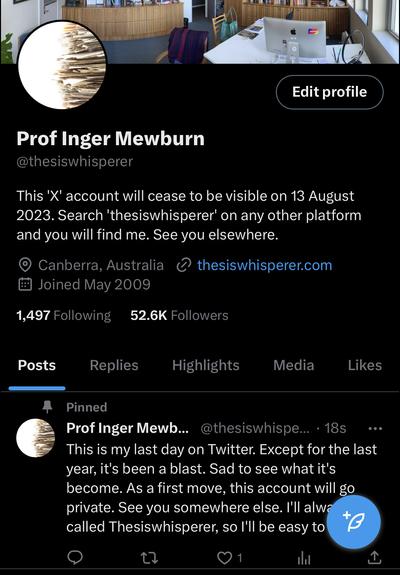The model collapse paper is now officially published, in Nature no less: https://www.nature.com/articles/s41586-024-07566-y
Genetics, neuroscience
A very interesting role for a cytidine deaminase: a single base RNA modification that converts a protease to a growth factor acting in regeneration in the C elegans nervous system.
https://journals.plos.org/plosgenetics/article?id=10.1371/journal.pgen.1011367
Lots of cool things Margaret learned from making/studying different conditions and mutants: hermaphrodites become cooperative in mating once they run out of sperm, or if they never make sperm; males and females use the same neurons to chemotax to the opposite sex. And another hermaphrodite species becomes even more female-like in the response to males when sperm-depleted. Their nervous systems are simple, but these latent and flexible behaviors teach us not to underestimate our model organisms.
Margaret compared pairs of closely related species where one species is male/female and one is male/hermaphrodite. She found that females are highly motivated to mate. They chemotax to males, and cooperate with males during mating. They get less cooperative after they’ve been mated, though. Hermaphrodites are unmotivated and uncooperative. But why? Two reasons — they’ve lost a specific olfactory response, and their own sperm makes them think they’re “mated”.
I’m excited that Margaret Ebert’s postdoctoral work is out in Current Biology! This paper explores the ways mating behaviors differ between females and hermaphrodites. https://urldefense.proofpoint.com/v2/url?u=https-3A__authors.elsevier.com_sd_article_S0960-2D9822-2824-2900087-2D3&d=DwMFaQ&c=JeTkUgVztGMmhKYjxsy2rfoWYibK1YmxXez1G3oNStg&r=kGWJErNJo7fN0L1-etpxjVyd5wpAuwGrxU_YWX1OYbA&m=vg0aRq2g8QSFvw41XER_EOdynW_Rl6bIOXu816Td43Vp566oGs9-FLg30F0TfvWG&s=_9yvee-VCP_XX34gqubIBIDwpdEabPDP77bzxfX4X0s&e=
Announcing the 2024 edition of the Paris Spring School for Optical Imaging and Electrophysiological Recording in Neuroscience
15-28 May 2024
Application deadline Feb 1st.
Boosts appreciated.
@ariaflame @mattotcha I think the intended reference is this one: https://pubmed.ncbi.nlm.nih.gov/37922904/
@AngryStaffer You need to follow people. You are the algorithm.
I'm hiring a Software Engineer to work on ML for CryoET at the new CZ Imaging Institute in Redwood City, CA: https://grnh.se/8394d0275us
We're building a fantastic team at CZII. We have a supportive group of folks in a flat org structure and are all working hard to accelerate the future of imaging. The person who takes this position will have space for creativity and collaboration. I look forward to meeting you if I haven't already :)
"Actually, we will read your thesis" by Neel Krishnaswami https://semantic-domain.blogspot.com/2023/09/actually-we-will-read-your-thesis.html
"whenever I find a paper I don't understand, I start looking for the PhD thesis based on it. Nine times out of ten, the thesis is vastly more understandable: "obvious" lemmas will have explicit proofs, algorithms will have detailed pseudocode, and the right intuitions and perspectives to take about the topic will be spelled out."
Can relate. A colleague of mine, Stefan Pulver, once mentioned to me the "strategic reserve of Michael Bate's lab PhD student theses" as something of wonder – he was a postdoc in that lab. Huge amounts of data not deemed splashy enough for publication but full of details and caveats and protocols for studies of #Drosophila larvae #neuroscience.
A #Braininitiative moment with John Ngai and Bill Newsome at Carla Shatz’s celebration today:
Happy that Kotaro Kimura @KK_CeNeuro visited the lab and shared his work on persistent arousal behavior. https://academic.oup.com/genetics/advance-article/doi/10.1093/genetics/iyad148/7245927?login=false
Assistant Professors of Neuroscience
Johns Hopkins University
Johns Hopkins University is currently accepting applications for six tenure-track Assistant Professor positions in neuroscience-related fields
See the full job description on jobRxiv: https://jobrxiv.org/job/johns-hopkins-university-27778-assistant-professors-of-neuroscience/?feed_id=55662
#ScienceJobs #hiring #research ...
https://jobrxiv.org/job/johns-hopkins-university-27778-assistant-professors-of-neuroscience/?feed_id=55662
This is the last day of my Twitter account. I have over 52K followers there, but I can't remain on a platform that pays people like Andrew Tate to post. I do this knowing it significant limits my reach in the academic community, but the standard you walk past is the one you accept.
Hi all! I'm a neuroscience postdoc studying information seeking and curiosity *in mice* in Richard Axel's lab at Columbia. I'll be on the academic job market this fall(!!!). Excited to be here. #introduction
My first post on Mastodon post -- any @Neurobio out there? @retina
@Marlafeller @Neurobio hey, good to see you here!
@jekely so glad to see you here!
Here is my #introduction. I am a biologist interested in #neuroscience and the #evolution of cells and nervous systems. My research group studies #ciliated marine larvae from a whole-organism perspective, combining behaviour, #connectomics, #imaging, #CRISPR, #modelling and other approaches. We love marine #larvae, their #neurons, #cilia, and #neuropeptides.
